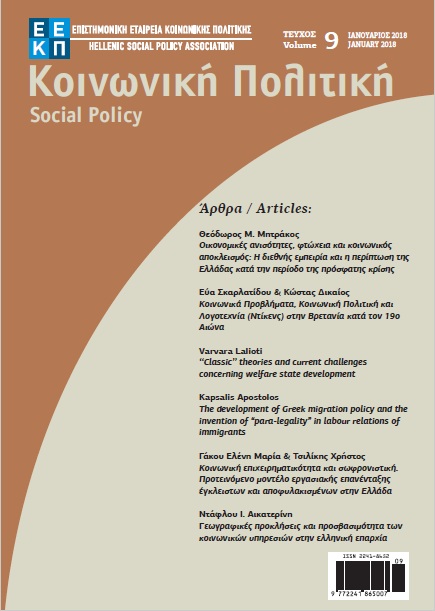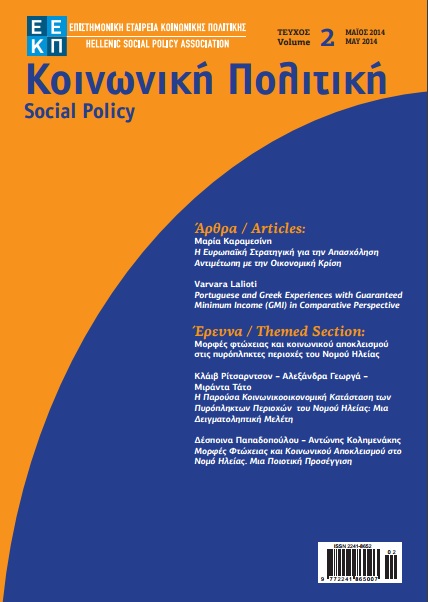Understanding Limitations on Welfare Policy Innovation: The Case of National Guaranteed Minimum Income All Italiana

Abstract
At the beginning of 2016, Italy remained one of the very few Eurozone countries without a national-level Guaranteed Minimum Income (GMI), arguably a major lacuna in the armoury of the welfare state at a time of severe crisis and significant public spending cuts. Drawing on personal communications, parliamentary archives and secondary sources, an actor-centred approach emphasizing the role of domestic actors such as parties, trade unions and religious organizations is utilized to discuss the chronicle of the Italian GMI experience; especially the experimental national GMI in the late 1990s and the early 2000s.
The experiment met with an early demise due to a meagre support base, in conjunction with the dominance of northern interests at the ministry responsible for the design and implementation of a scheme that mainly benefited the poorer south. A policy targeting ‘outsiders’ and introduced without broad consensus among key policy actors is unlikely to be durable. The recent economic crisis has revived the debate, as old and new policy actors express support for national-level GMI.
Article Details
- How to Cite
-
Lalioti, V. (2017). Understanding Limitations on Welfare Policy Innovation: The Case of National Guaranteed Minimum Income All Italiana. Social Policy, 6, 67–84. https://doi.org/10.12681/sp.10881
- Issue
- Vol. 6 (2016)
- Section
- Articles

This work is licensed under a Creative Commons Attribution 4.0 International License.
Authors who publish with this journal agree to the following terms:
Authors retain copyright and grant the journal right of first publication with the work simultaneously licensed under a Creative Commons Attribution Non-Commercial License that allows others to share the work with an acknowledgement of the work's authorship and initial publication in this journal.
Authors are able to enter into separate, additional contractual arrangements for the non-exclusive distribution of the journal's published version of the work (e.g. post it to an institutional repository or publish it in a book), with an acknowledgement of its initial publication in this journal.
Authors are permitted and encouraged to post their work online (preferably in institutional repositories or on their website) prior to and during the submission process, as it can lead to productive exchanges, as well as earlier and greater citation of published work.




